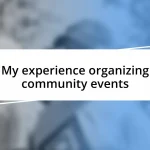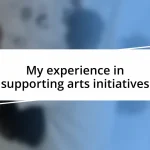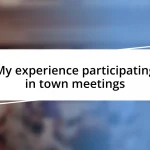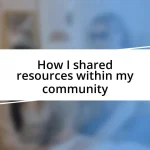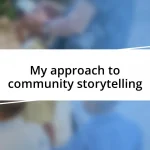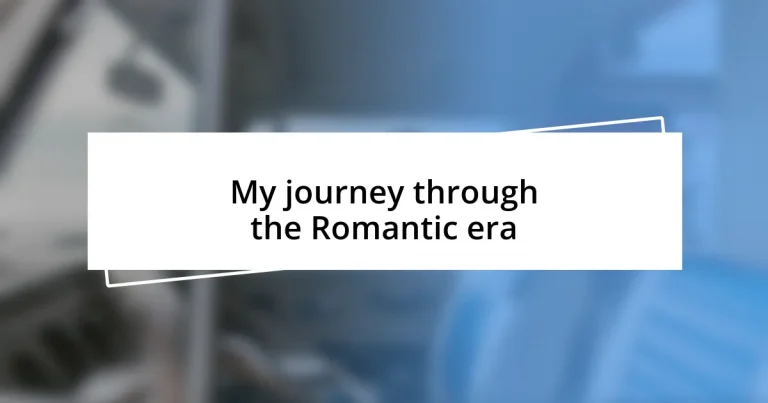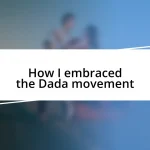Key takeaways:
- The Romantic era emerged as a reaction against Enlightenment rationalism, emphasizing emotion, individual experience, and a connection to nature.
- It significantly influenced social movements like feminism and nationalism by promoting individuality and personal rights.
- The movement reshaped education to focus on creativity and emotional development rather than rote learning.
- Romantic themes continue to resonate in modern life, inspiring personal expression, emotional authenticity, and a connection to nature.
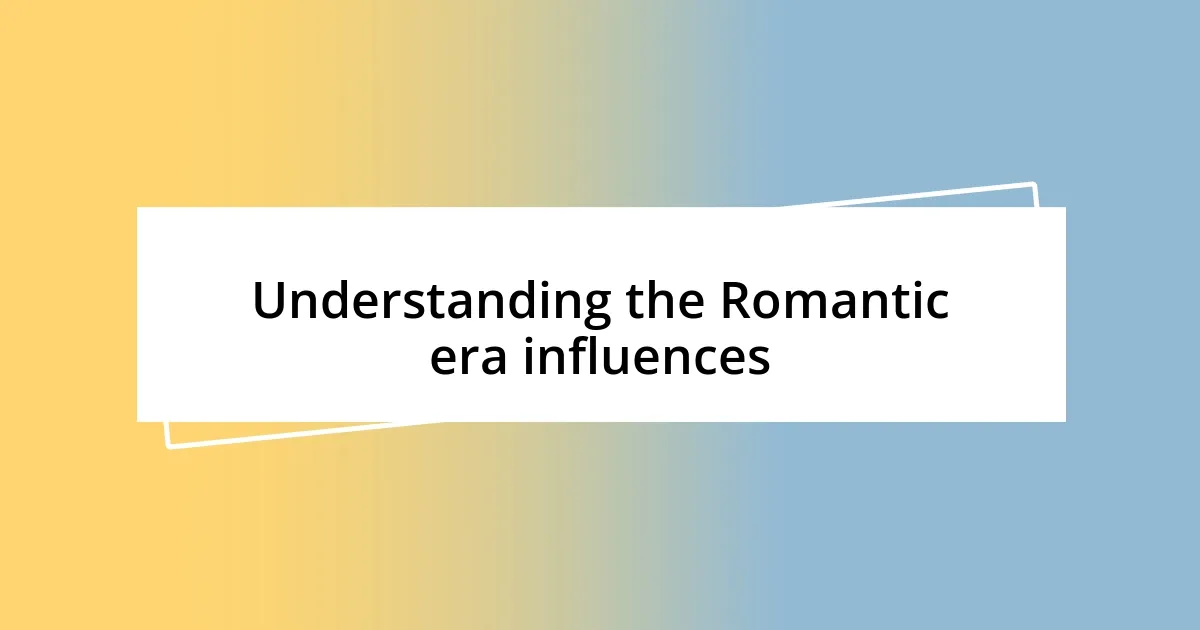
Understanding the Romantic era influences
The Romantic era was profoundly shaped by a reaction against the rationalism of the Enlightenment. I often find myself marveling at how artists and writers sought to emphasize emotion and individual experience over logic—doesn’t it resonate with our own desires for authenticity in a world filled with rules? This pursuit of deep personal feelings forged new paths in art and literature, where nature often became a symbol of freedom and the sublime.
As I delve deeper into the influences of this period, I can’t help but notice how historical events, like the Industrial Revolution, sparked a longing for the past. I remember reading Wordsworth and feeling overwhelmed by his poetic veneration of nature—his verses evoke a sense of nostalgia for a simpler, more connected existence. Wasn’t this yearning for unspoiled landscapes a reflection of the anxieties of a rapidly changing world?
Moreover, the Romantic era was marked by an appreciation of the supernatural and the mysterious. When I reflect on the works of Edgar Allan Poe, I’m struck by how his intricate use of dark themes allowed readers to explore their deepest fears and fantasies. It makes me wonder: isn’t there something captivating about confronting the unknown through art? The Romantic era’s embrace of the spooky and the mystical expanded artistic boundaries, encouraging exploration beyond the familiar.
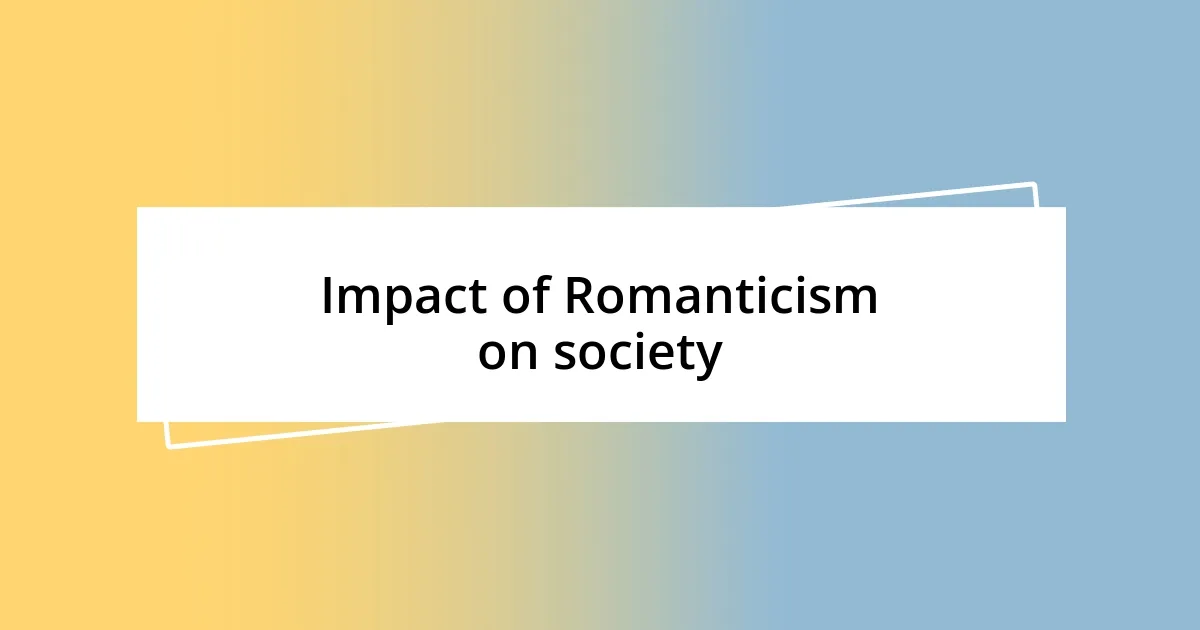
Impact of Romanticism on society
The impact of Romanticism on society was simply transformative. Through my reflections on that era, it’s clear that its ideals helped fuel movements like feminism and nationalism. For instance, I often think about how the emphasis on individuality inspired people to assert their rights and identities in a world that often marginalized them. When I see modern movements advocating for social change, I can trace some of their roots back to the spirit of Romanticism.
In my experience, the Romantic period also reshaped views on education and the importance of emotional development. I vividly remember a thought-provoking lecture where a professor discussed how Romantic thinkers encouraged a more holistic approach to education—fostering creativity and self-expression rather than just rote memorization. It really made me realize how pivotal those ideas were in evolving our perceptions of learning and individual potential.
Moreover, the relationship between nature and the human spirit during this era struck a profound chord with many. I recall hiking through a scenic area and feeling a deep connection to the landscapes so beloved by Romantic poets. That experience reminded me of how Romanticism encouraged society to seek solace and inspiration in nature amidst the chaos of industrialization. The movement nurtured a reverence for the natural world that has echoed through the ages and remains relevant today.
| Impact Area | Description |
|---|---|
| Social Movements | Inspired movements like feminism and nationalism by emphasizing individuality and personal rights. |
| Education | Promoted holistic education focusing on creativity and emotional intelligence rather than traditional methods. |
| Connection to Nature | Encouraged a reverence for nature, impacting how we engage with the natural environment today. |
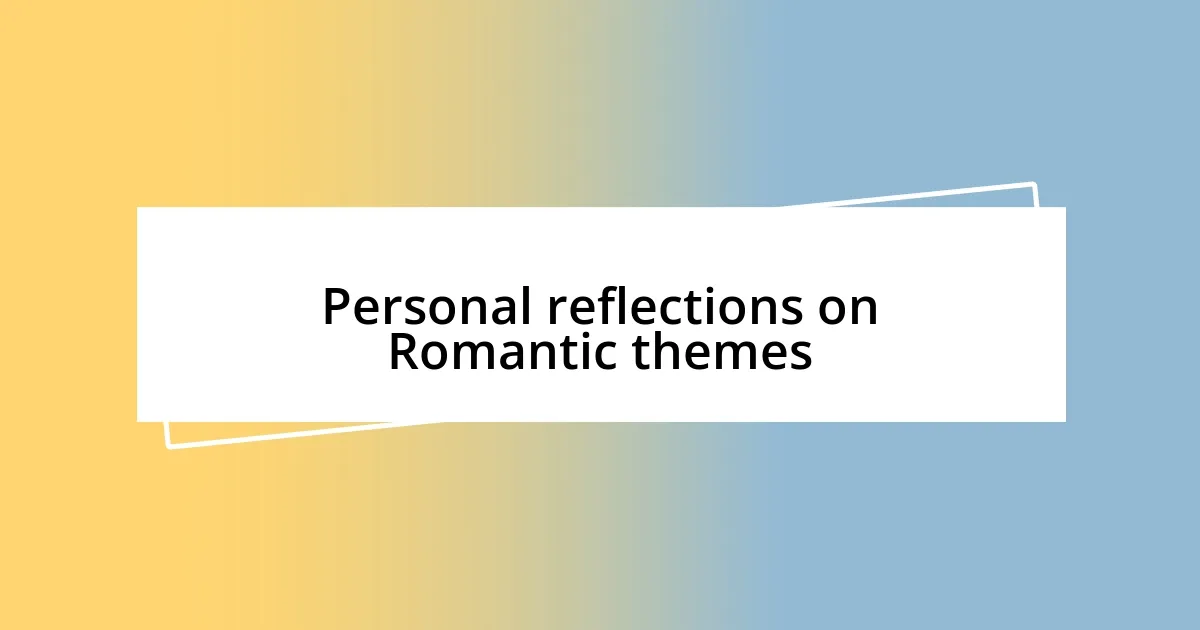
Personal reflections on Romantic themes
Reflecting on the themes of the Romantic era, I often find myself caught between a longing for deeper emotional connections and the realities of modern life. I recall wandering through an art gallery, where I stumbled upon a breathtaking painting that captured a stormy sea. The turbulence and chaos in that artwork echoed my own feelings of vulnerability—a reminder of how art can articulate emotions we sometimes struggle to express. Romanticism, with its emphasis on personal feelings, allows us to explore our inner landscapes, something I cherish in my own journey.
-
Nature as Escape: I vividly recall a trip to the mountains where the beauty of the untouched landscape enveloped me. It felt like stepping into a poem by Keats, illuminating the profound connection I have with nature.
-
The Supernatural Allure: I remember reading a Gothic novel late at night, the dim light casting shadows that danced with the story’s dark themes. That thrill of fear and fascination cemented my appreciation for how the mysterious invites us to confront our own apprehensions.
-
Individualism and Identity: One winter evening, as I sat by the fireplace with a journal in hand, I felt liberated writing down my thoughts and feelings. That personal expression mirrored the Romantic insistence on celebrating the self, a practice that has increasingly become a beacon in my life.
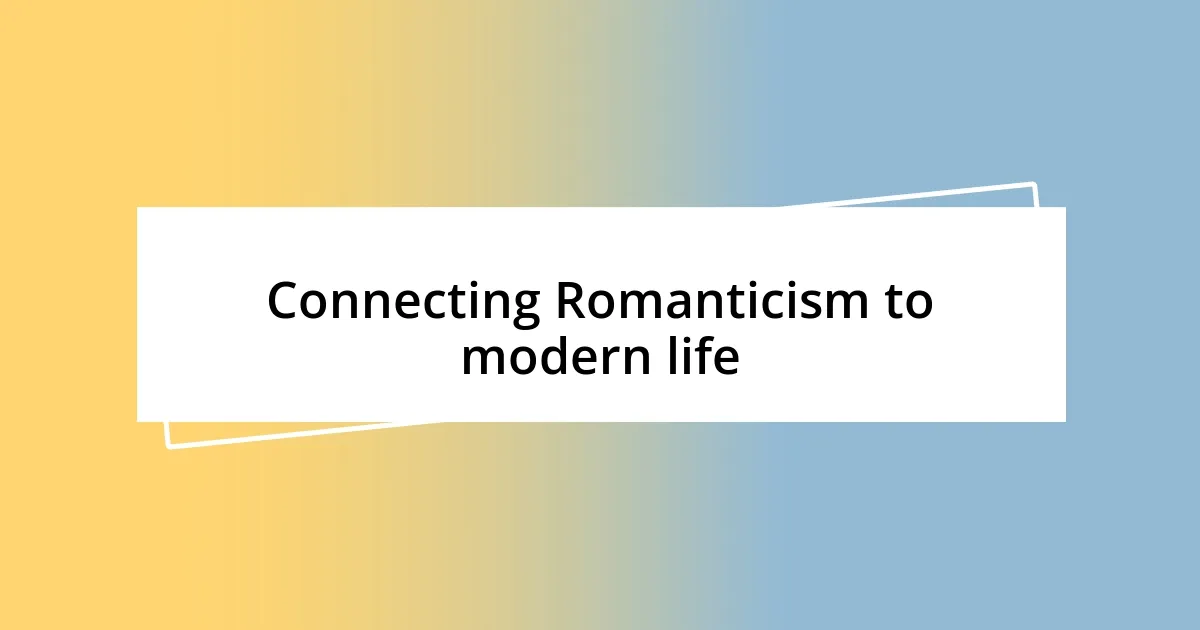
Connecting Romanticism to modern life
As I dive into the connections between Romanticism and modern life, I can’t help but see how the movement’s deep appreciation for individuality resonates today. Just last week, I attended a local poetry reading where the performers shared their personal stories, each one raw and unfiltered. It struck me that, much like the Romantics who celebrated personal expression, these artists were reclaiming their voices in a world that often tries to silence them. Doesn’t that sense of freedom feel like a lifeline in our increasingly connected yet isolating lives?
In my own journey, I often seek out natural spaces to recharge—a practice inspired by the Romantic belief in nature as a source of inspiration. I remember a weekend getaway to a quiet lakeside cabin where I could hear the gentle waves lapping against the shore. Sitting there, I felt an overwhelming sense of peace and clarity that reminded me of the Romantic ideal of nature as a sanctuary. How often do we forget to disconnect from technology and reconnect with the world around us?
Moreover, the timeless theme of embracing emotion continues to play a significant role in how I navigate relationships. Recently, I caught up with an old friend over coffee, and our conversation quickly flowed into heartfelt confessions about our struggles and dreams. I could feel the bond between us strengthen, echoing the Romantic emphasis on emotional authenticity. Isn’t it fascinating how these ideals still urge us to connect on a deeper level, reminding us that vulnerability is not a weakness, but a profound human strength?


